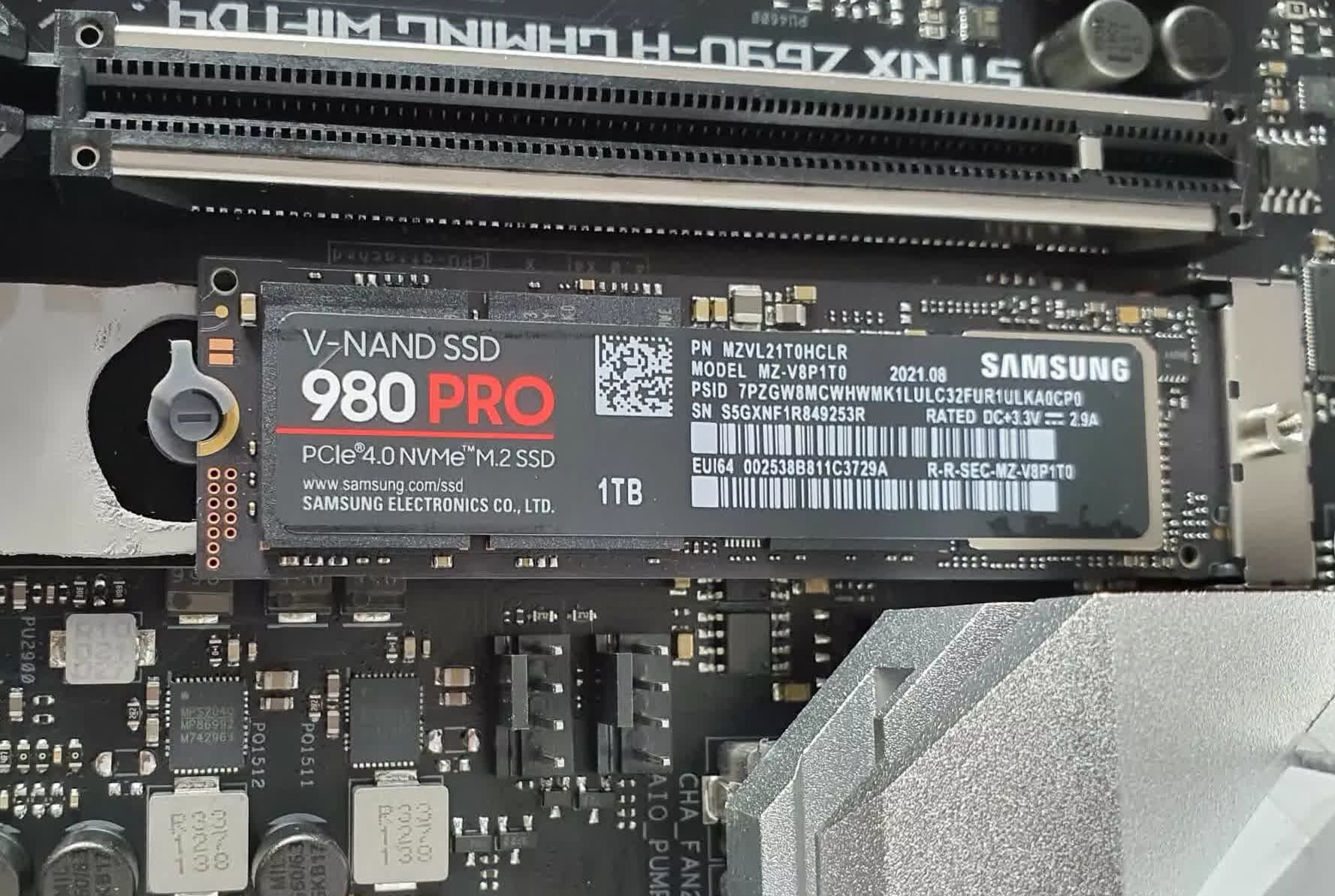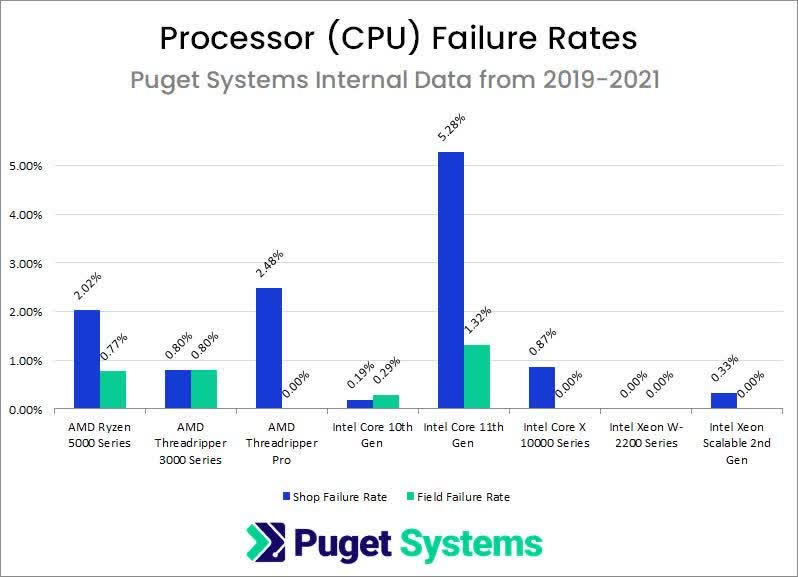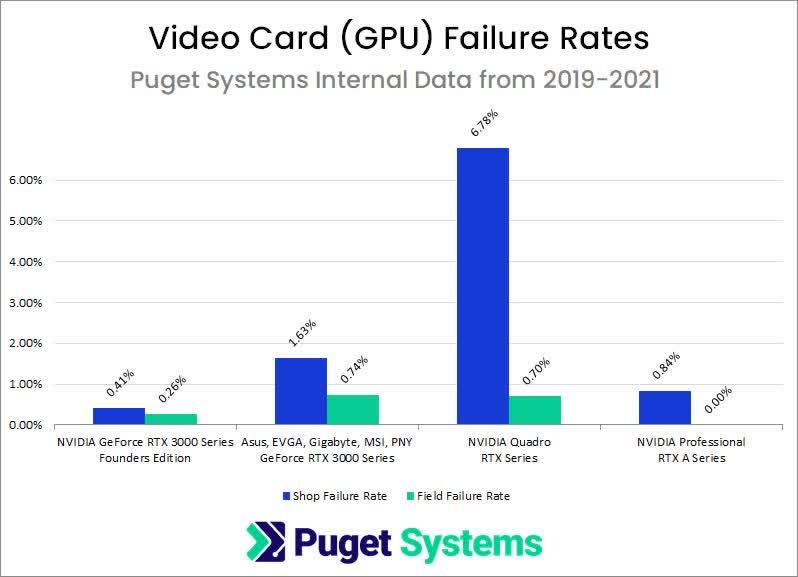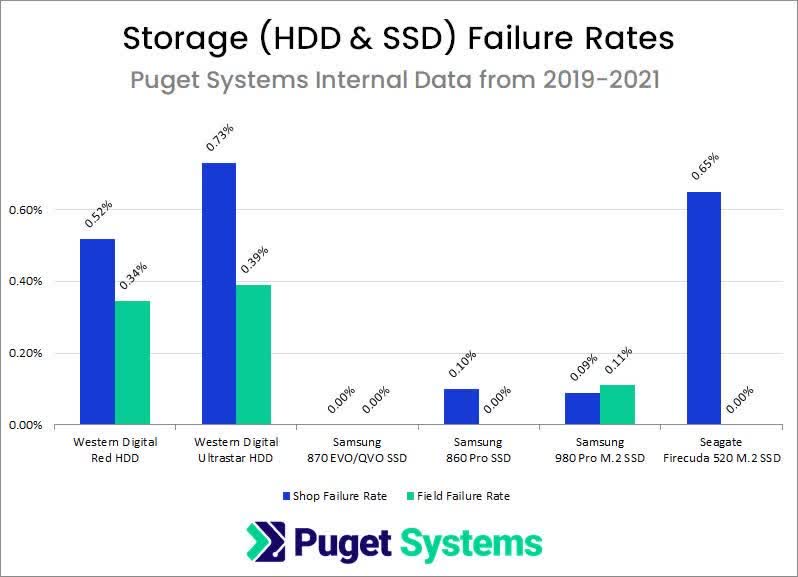What just happened? Custom workstation/server builder Puget Systems has released a breakdown of the failure rates found in hardware it sold throughout 2021. There are some interesting results, which come with certain caveats, but the biggest takeaway appears to be that if you want a reliable storage drive, Samsung SSDs are a good bet.

Puget notes that as every part it uses in its systems goes through a comprehensive qualification process, the failure rates reported here are likely lower than the industry average. “This means that our relative failure rates between certain hardware groups may not match up with what you would see if you were to build your own system, or even buy a workstation from other computer manufacturers,” it states.
Additionally, Puget does not include any failures it believes were caused accidentally by employees or customers, or anything related to shipping damage. Moreover, it only includes hardware groups that it has statistically significant amounts of data for.
Starting with processors, Intel’s 11th-gen CPUs saw the highest failure rates by far: 5.28% in the shop (during testing, before being sent to out) and 1.32% in the field (with customers). However, team blue’s 10th-gen processors had better combined failure rates than all of AMD’s offerings. Intel Xeon processors also had low failure rates, though this category saw the fewest sales. Puget notes there weren’t enough 12th-gen Alder Lake chips to include in the figures.
Moving onto video cards, the Quadro RTX Series had the most failures. This was due to a manufacturing problem with the USB-C VirtualLink port on the RTX 4000. “All of them we received from May 2020 onward were defective, so huge swaths of our inventory of those cards failed our testing here - and for a long time after that discovery, we stopped offering them at all,” Puget writes.
Interestingly, Nvidia’s Founders Edition RTX 3000-series cards were more reliable than those from AIB partners.
In storage drives, Samsung SSDs show extremely low failure rates in both the shop and in the field, a trend that Puget says has been ongoing for years. Over 1,000 870 EVO and QVO drives were sold during the covered period, with no reported failures. The company notes that it has sold over 35,000 Samsung drives during its entire recorded history, yet fewer than 100 have failed.
Check out the report for the full breakdown, including failure rates for PSUs and DDR4 memory.
h/t: Tom's Hardware
https://www.techspot.com/news/92976-puget-reliability-report-shows-samsung-ssds-fail-least.html


